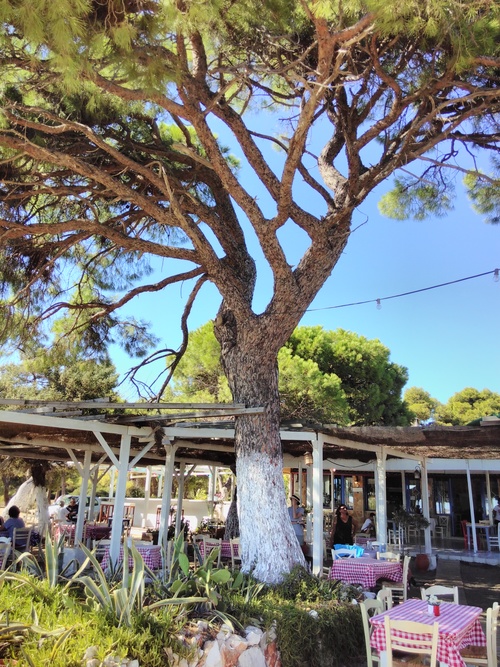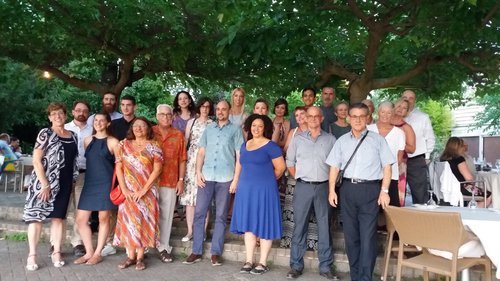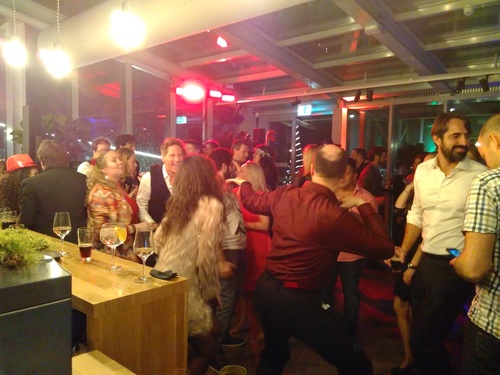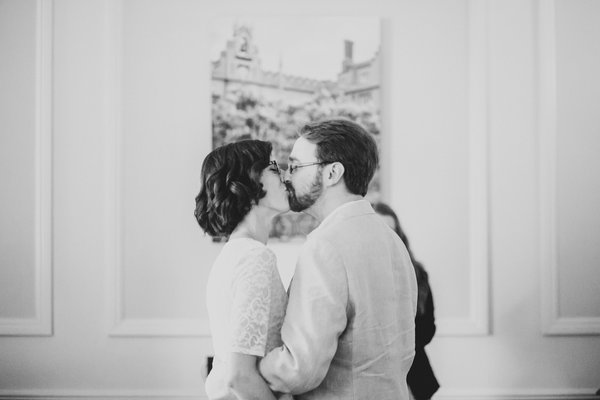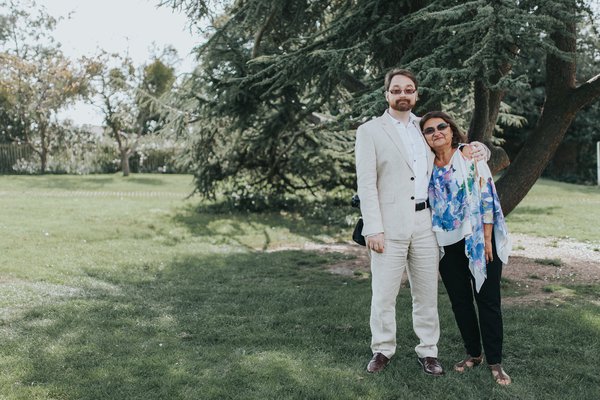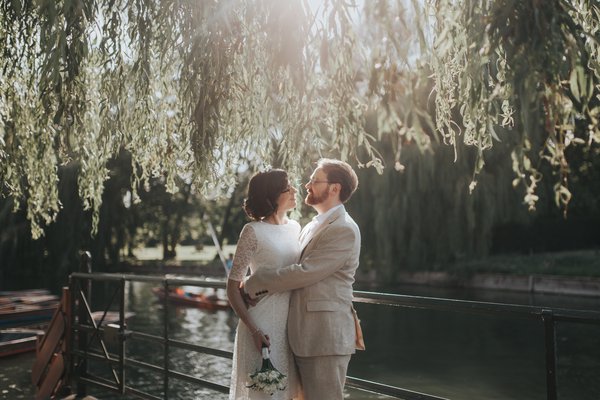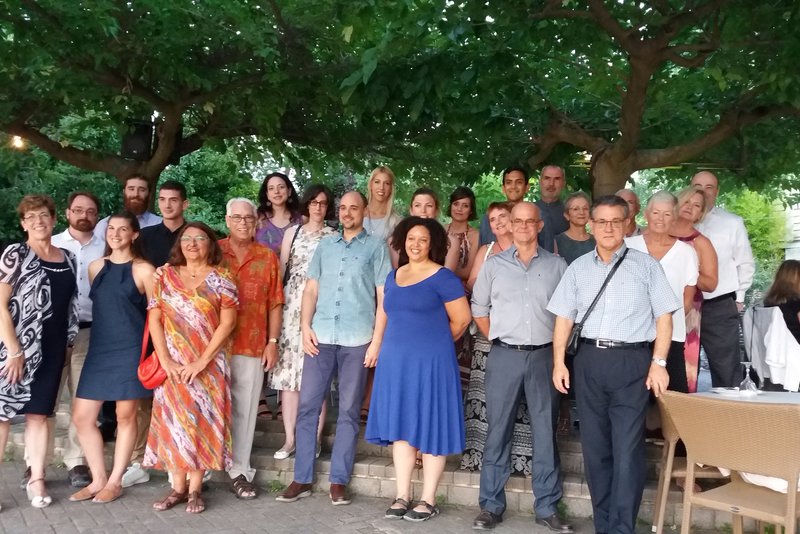2018
Look at me, posting my 2018 recap just 5 days into 2019. I think I've grown.
In some respects, this was kind of a big year for me, but depending on your point of view, 2018 is rather unimpressive when compared to some of my previous years.
Personal
This was kind of a big year on this front. Christina and I are still happily married and living in Cambridge. Some friends have moved away (back to a stable country with promise and no Brexit, how dare you?) and gained some new ones. We also moved to a new part of Cambridge -- into an actual house. It's the first time I've lived in a house in 18 years and so far, I don't like it.
One thing has pretty much dominated our lives this year though...
Pregnancy
Christina got knocked up this year -- on purpose even! The baby is due any day now, but her coming into the world will have to be a note for 2019.
For the most part, the pregnancy has gone well. Christina is uncomfortable, but by comparison to what she's heard from other mothers, she insists, this has been surprisingly easy. She was cycling to work even until yesterday, but she's now officially on leave, probably until around July. I'm afraid she might go a little bit crazy without a day job.
For my part, I haven't really had much to do (yet). Christina's a fully capable woman who, outside of the occasional help off the couch, hasn't really needed help, even when I insisted on giving it. I expect the bulk of my contribution will come after the kid is born, while we sleep in shifts for a few months. I'm so not looking forward to that.
Once we announced that we had a kid on the way, our friends Matt & Mila were especially supportive, offloading a bunch of their baby stuff to us as they prepared to return to Canada. Watching them raise Kiera over the last year has given us a lovely window into what to expect. I will never forget the look on Matt's face when I bumped into him in Tesco just a month after Kiera was born. I saw my future and it was scary :-)
Grandma Nana
This was also the year my grandmother died, though for those of us who knew what she was going through, it was more a relief than a reason to despair. Grandma had been fighting pulmonary fibrosis for thirteen years, and was ready to go. She exercised her right to die on her own terms, but I'll miss her nonetheless.
My Mom Beat Cancer
My mom, smoker for roughly half a century, came to me back in May with news that she had breast Cancer. It wasn't too far along, and the doctors were confident that she could beat it, and she did.
It's hard to explain what those months were like for me. I found out while I was on vacation visiting family, and everything that came after the news felt surreal. I am not ready to lose my mom yet. What would this be like for her? What kind of pain was she lined up for to fight this? Would my daughter ever get to know her grandmother?
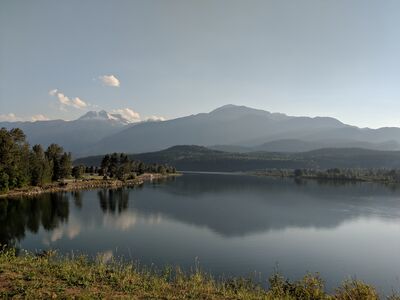
I can't imagine what it must be like for people in countries without socialised medicine. Along with the impending loss of a family member, you'd have to consider the ramifications of crippling debt that would follow. In Canada however, my mom walked into the hospital and received surgery and radiation, covered by public funds. She beat the plauge of the 20th century and got to keep her house.
I am so proud of her, but more than that, I'm relieved that she's still around.
Weight Loss
Finally, I started reversing my slow upward trend of weight gain over the last few years and lost roughly 7kg (15.4lbs) over 6 months. I'm feeling healthier and have more energy, and the process has opened my eyes to the amount of bad information we all get when it comes to food.
I lost weight (slowly, and responsibly) by following physics: I took the number of calories required to keep me alive on a day-to-day basis and consumed a few hundred calories less than that number, every day for six months.
What surprised me is how little I knew about a healthy diet in general, namely how little weight loss has to do with (a) exercise or (b) so-called healthy foods. You will absolutely lose weight if you limit yourself to a cookies-only diet, so long as you limit those cookies to the right number of calories per day. Everything else: vitamins, and minerals: that'll keep your liver from failing, but eating more calories than you burn will always make you fat.
Exercise is another lie we collectively follow. Yes, it's absolutely good for you to be active, but if you're expecting a bout of exercise to be the crux of your weight loss programme, you're in for a disappointment. Running on a treadmill for 30min burns roughly 2 cookies worth of calories. You'd have to run on that treadmill for about six hours to work off a single cheeseburger.
Mostly I've managed this by eating the same as I always have, but simply eating less of it. I still consume an inordinate amount of chocolate and indulge in burgers from Five Guys from time-to-time, but always in the context of keeping things under that limit, and it's worked.
As I'm a data-nerd, I've collected the results into a nifty chart that updates every day here

Travel
2018 was a rather limited year for travel. With the exception of 2 Canada trips, we mostly stuck close to home.
Toronto
Christina had a short conference she had to appear at in Osgoode Hall in Toronto, so I came along and we turned it into a short holiday. It's was nice to see some friends again, including the city I love, and introduce them to my wife. We ate at all of my favourite places: Futures, Burrito Boyz, Alexandros, (Christina approved of the gyros), C'est What, even Fran's! I got to spend the day with Kelly, have lunch with Lara & Theresa, and go on an epic walk through the Don Valley with Stephen, rounding out the evening at "Snakes & Lattes" with our respective wives.
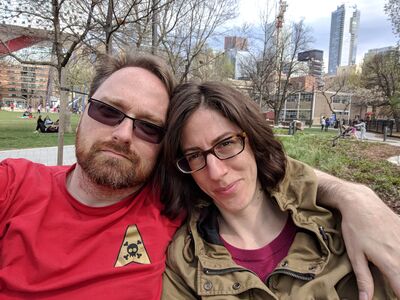
Toronto's an amazing city and I miss it dearly. It was wonderful to be there again, if only for a little while.
Brussels
For Eurovision this year, Christina and I hopped on the Eurostar and visited her cousin in Brussels. It was just a short weekend trip, but we met her new boyfriend, visited Mini Europe, ate some burgers and cheered for Estonia (well I did anyway) while we watched the show on Matina's "fabulous A/V system".
Assuming Brexit doesn't destroy the UK in March, I'm thinking maybe this year we'll host a Eurovision party and return the favour.
Canada & Wedding #3
The big bit of travel this year was the voyage home with my new family members in tow.
Christina, her parents, and I all hopped on a flight to Vancouver in July for a "see as much of Canada as you (reasonably) can in in 3 weeks" trip. Her parents had never been to Canada before, so I was determined to show them a good time.
This was also the occasion for our third wedding -- it was also my favourite of the three. To all of you who came, thank you so much for making it the Best Day Ever.
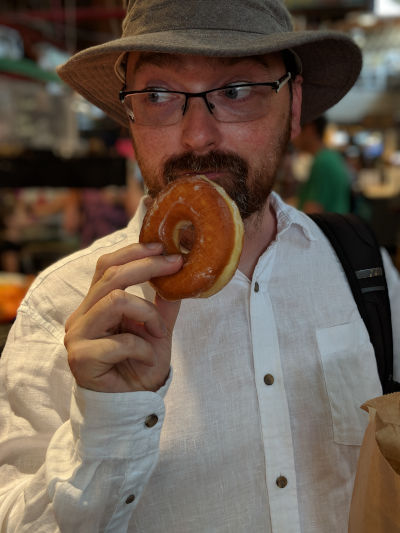
The trip included just over a week in Vancouver, where we walked all over the city: Stanley Park, Commercial, the West End, Gastown, Chinatown, UBC, up to Grouse Mountain, and Granville Island. We saw Bard on the Beach, went through the Aquarium, and walked most of the Sea Wall. You know, touristy things. We even checked out Dude Chilling Park, which Carol thought was hilarious.
Once we were through with Vancouver, we headed up to Kelowna to see the rest of my family. My parents put us up in a nearby condo, and for most of that week, we just decompressed from the excitement of the previous one. Still, we had a bunch of family visits, a trip to see some kangaroos, and a walk along the Myra Canyon Tresles where we managed to see a couple of moose wandering up the path to the top of the mountain.
After our week of down-time, we headed North to Revelstoke where we crashed for the night, then onto Banff to see the prettiest part of Alberta for a couple days. Unfortunately, after the first day, the forest fire smoke made sticking around intolerable, and the staff at the excellent Falcon Crest Lodge were cool with letting us check out a day early.

We headed East into the prairies, over to Drumhellar, watching the land flatten out around us. It wasn't as dramatic as Saskatchewan, but we weren't going to get that far on this trip. We spent an afternoon at the Tyrell Museum, and then headed into Calgary for a proper steak dinner. That was our last night in Canada.
Overall, and with the exception of Wedding #3, I think much of this trip was (at least to me) to give Christina's family a good impression of where I came from. Her parents got to meet my family, my friends, and my country -- as best as I could show it anyway. It was an amazing trip, but it took a lot out of me.
Amsterdam
The last trip out-of-country was just to Amsterdam for another RIPE hackathon, this time on quantum computing. My friend Mihnea put me up while I was in town and he came out with us for the closing dinner of the event. I miss that town a lot :-)

Professional
Only one big thing went down in 2018 on this file: I changed jobs.
MoneyMover → Founders4Schools
I loved working at MoneyMover. The work itself
wasn't particularly exciting, but the people -- I love the people there.
Everyone is so friendly and encouraging. You really get the impression that
people care about you and the work they do. It's unfortunately something quite
rare in my field.
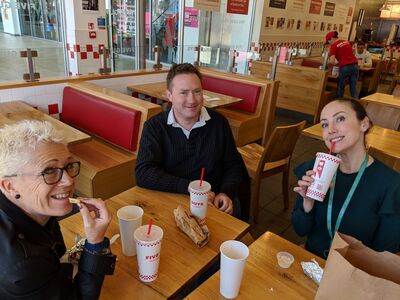
However, the work wasn't really challenging me, and I was beginning to worry that I was missing out on some critical fields of development in the industry. In IT, you're only so valuable as the technologies you can keep on top of, so this is the sort of thing that can hurt you if you take your eye off the ball for too long.
So when the opportunity to move onto a charitable organisation that was promising more complex work, better pay, and a great parental leave package, I couldn't say no. I started at Founders4Schools in November, and am slowly settling into my job. I've stayed connected to MoneyMover though, doing a little contracting work for them here-and-there when I have the energy out of office hours.
Free Software
This year was kind of a big deal for Aletheia and Paperless, and I had the wisdom to not start anything new ;-)
Aletheia
I started this project in 2017, but it was 2018 where it got a lot more people looking at it. The biggest event of course was the talk I gave at PyConUK: the longest, and most nerve-wracking talk I've ever given. People tell me that they couldn't see it, but let me tell you that this was the most stressful moment in my professional life. Still, it felt amazing, and I got lots of exciting questions and comments afterward.
I also did a guest spot on a local university podcast called PirWired. Sure, the show is hosted by a friend of mine, but the audience is non-technical people interested in the subject my technical project is trying to solve. Rahel was a great host, and the experience was a lot of fun.
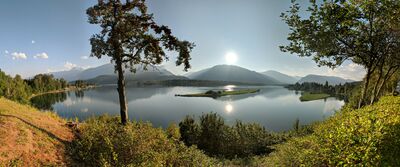
I've also since added a project page to this site for it, along with one for Paperless.
On the whole, I'm rather disappointed with the lack of traction I'm seeing with this project. I believe that this is the best option for the problem it's trying to solve, but I'm afraid I'm not much good at getting people to pay attention to stuff. The code is Free, so anyone can use it, but if they don't know about it, they're never going to use it.
Paperless
With my commitment to Aletheia, Paperless has more or less moved into maintenance mode -- at least for me. People will post pull-requests to the GitHub repo about 3 or 4 times a month, and I try to merge them in a timely fashion, but for the most part, I'm not doing any new development on it.

Of course, that hasn't stopped it from continuing to grow in popularity. It just crested over 5000 stars on GitHub and users are now responding to each other on the issue queue. It seems people really dig it, especially for its simplicity (my ideology is always a limited number of moving parts), and they're building a community around it.
It's with all this in mind that I posted a special issue about the status of the project on December 31st. I've put out a request for co-maintainers and/or ideas regarding how the community might better grow the project without requiring as much from me. So far the results have been positive, but no one has had the resources to step up and take a leading role yet.

In The World
Much of 2018 felt like we were collectively holding our breath to see what may come next.
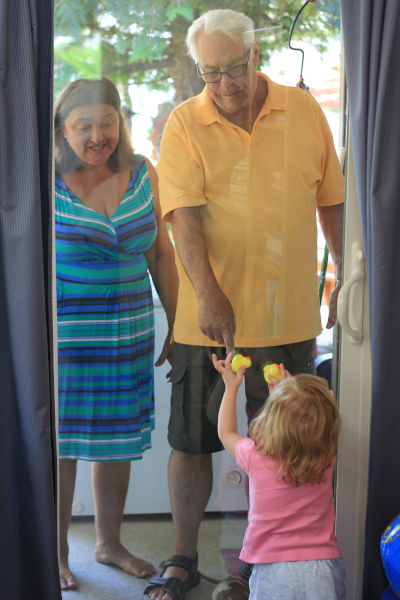
Brexit
Brexit is still a disaster, but only appears to be getting worse. The Conservatives hammered out a deal that nobody likes (but was honestly the best they were ever going to get with the EU) and so the political debate is a complete mess:
- The Leave Conservatives hate the deal because they think it ties their hands. They advocate for a "hard Brexit": leaving with no deal. Experts say that this would undoubtably lead to food shortages, economic collapse, and difficulty getting in and out of the country.
- The Remain Conservatives hate the deal because it means actually leaving, though I don't know of any Conservative voices interested in undoing this mess.
- Labour is obsessed with calling an election to replace the Conservatives. They're going with the "We could have gotten a better deal" angle, which is a lie, because the EU is holding all the cards.
- The Liberal Democrats, Scottish Nationalists, and Greens are all calling for a 2nd referendum in the hopes that were it to reverse the initial vote, we could safely call the whole thing off. The problem here is that there's no reason to believe the public has sufficiently changed its mind, and it would take (much) longer to organise a referendum than we have before the deadline.
- The media here has somehow managed to convince the public that Brexit is Labour's fault. Somehow, the party that hasn't had power during any of this, is responsible for the mess that it is.
This country is so fucked.
I've been joking that I'll arrange for us to be in Greece over the deadline. You know, just in case a hard Brexit really does happen and we're left having to deal with food shortages while nursing a 3 month old. I'm now seriously considering it.
Doug Ford
Doug Ford's Conservative party won in Ontario, ushering in a sort of "Trump Light" mindset into Canada's biggest economy. I'm concerned that this isn't being seen for what it really is: a beachhead for MAGA nutjobbery in my home country.
Sure, Canada has a "progressive" party at the helm (more on that later), but governments are transitory, and if the Harper years have taught us anything, it's that a determined ruling party (and leader) can leave lasting scars on a nation.
There is widespread hate (and I do mean hate) for Trudeau across Canada. It's at the heart of groups like the Proud Boys and the Yellow Vest Protests. Ford tapped into it for his own campaign, and it's unlikely that he's the only one who noticed this trend.
Canada is teetering on the edge of an abyss filled with the same anti-immigrant, anti-environment ignorance and fear we see driving the US, but unlike the US, I think there's too many Canadians that refuse to see it. There's still this idea that we're supposed to be better than the Americans. That we could never have a Trump, because being Canadian somehow insulates us from ignorance and fear.
As someone living in the UK, a country with much the same sort of blinders, I say to you now: It doesn't. Be vigilant Canada.
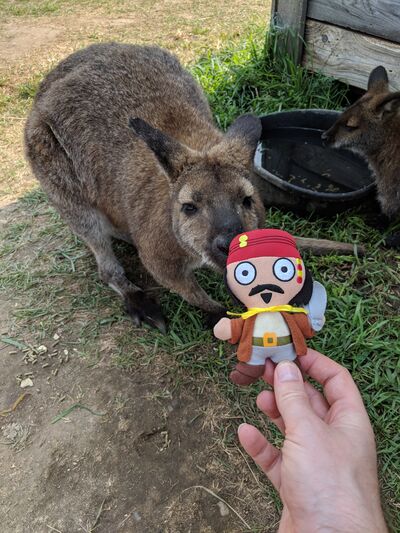
Trudeau Bought a Pipeline
Also on the Canadian front, in a brilliant feat of offloading private risk to public coffers, our "progressive" Prime Minister had us buy a pipeline. Now, Canada bears the financial risk of producing a pipeline designed to hasten the deaths of millions around the world. Go Canada!
US Election
The US had some (sort of) good news though: the Democrats managed to take back the House of Representatives, bringing in some amazing congressmen like my new hero, Alexandria Ocasio Cortez.
This is the next generation of the Left and it's about time they showed up. With progressive platforms like socialised medicine, abolishing ICE, and recognising climate change as the "single biggest national security threat", they represent a motivated front of people devoted to fixing the mess were all stuck in rather than stoking the coals of hate and fear.
This is a Left that recognises that the majority is leaning right not because they offer anything in particular, but because the centre is so dedicated to keeping the status quo: even in the face of a dire need for change. Every country on Earth could learn a thing or two the recent successes of the Left in the US. The EU especially could find value here: this is the time for parties like the Greens and Diem25 to shine.
Most importantly, this push back from the Left will help to move the Overton Window in the right direction. For too long, crazy, racist, xenophobic, and anti-science has been becoming more and more normal. That shit has got to stop.

Good News
Finally, I have some good news, courtesy of this inspiring article that I found as the year closed out. Some of my favourites:
- In 2018, after more than ten years of debate, 140 nations agreed to begin negotiations on a historic “Paris Agreement for the Ocean,” the first-ever international treaty to stop overfishing and protect life in the high seas. National Geographic
- Germany released new figures showing that more than 300,000 refugees have now found jobs, and the share of MPs with migrant backgrounds has risen from 3% to 9% in the last two elections. Economist
- The UNDP released a new report showing that 271 million people in India have moved out of poverty since 2005, nearly halving the country’s poverty rate in one decade. Times of India
- A new report showed that the global fertility rate (average number of children a woman gives birth to) has halved since 1950. Half the world’s countries are now below replacement levels. BBC
- The world passed 1,000 GW of cumulative installed wind and solar power this year. 10 years ago, there was less than 8 GW of solar. Future Crunch
- Allianz, the world’s biggest insurance company by assets, said it would cease insuring coal-fired power plants and coal mines.
- China, the world’s biggest energy consumer, revised its renewable energy target upwards, committing to 35% clean energy by 2030. Engadget
- The United States set a new record for coal plant closures this year, with 22 plants in 14 states totalling 15.4GW of dirty energy going dark. #MAGA. Clean Technica
- Ireland became the world’s first country to divest from fossil fuels, after a bill was passed with all-party support in the lower house of parliament. Guardian
- Crime falls when you take in millions of refugees too. The number of reported crimes in Germany has fallen by 10%, to the lowest level in 30 years. Washington Post
- The Malaysian government announced it would not allow any further expansion of oil palm plantations, and that it intends to maintain forest cover at 50%. Malaymail
- Denmark became the latest country to announce a ban on internal combustion engines. There are now 16 countries with bans that come into effect before 2040 — including China and India, the two biggest car markets in the world. Bloomberg
- The European Parliament passed a full ban on single-use plastics, estimated to make up over 70% of marine litter. It will come into effect in 2021. Independent
- There is now a giant 600 metre long boom in the Pacific that uses oceanic forces to clean up plastic, and you can track its progress here. Despite a few early setbacks, the team behind it thinks they can clean up half the Great Pacific Garbage Patch in the next seven years. Ocean Cleanup
What's Next
My daughter is expected to be born in a matter of days so... that's happening. We've got Brexit on the horizon, and I imagine other things I haven't yet considered. For now though, I'm going to call it quits on this post 'cause it's already been 4hours and I still haven't collected the images I'm going to use.





